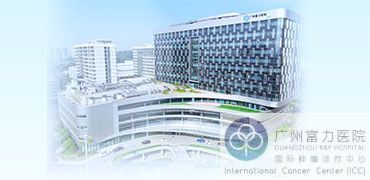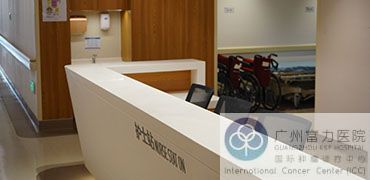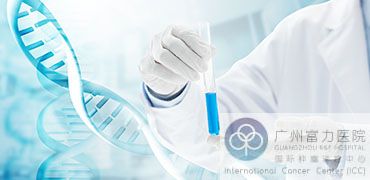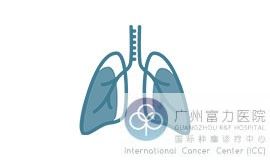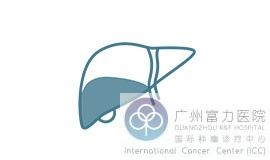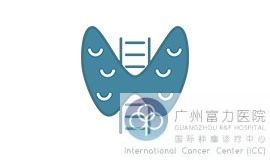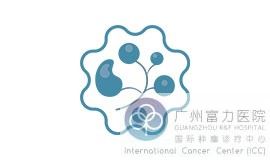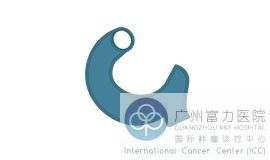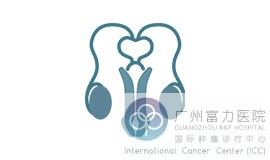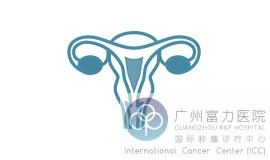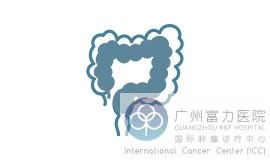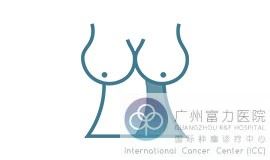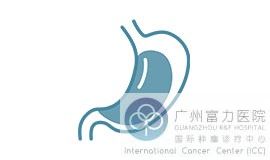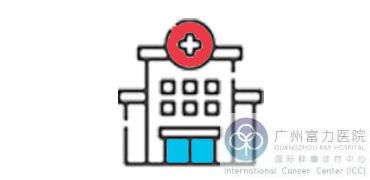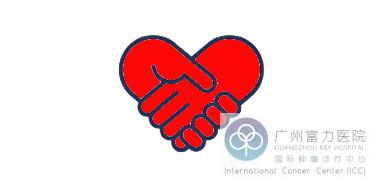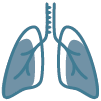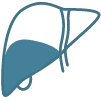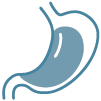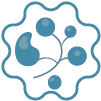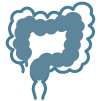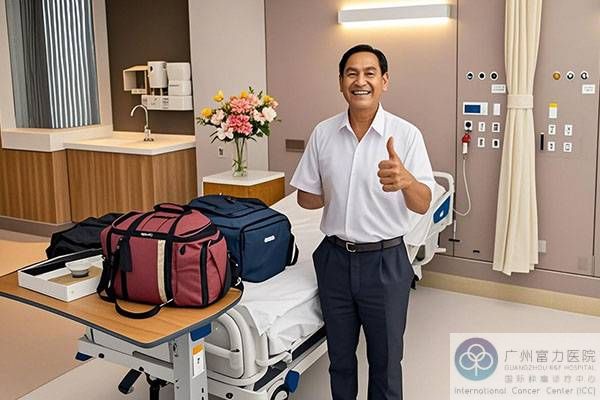——Lung Cancer ——
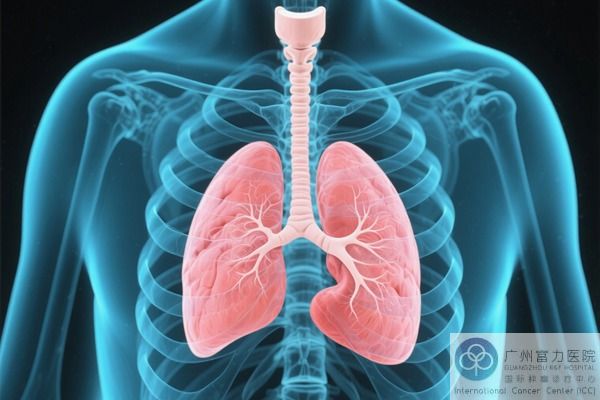
Lung cancer is a malignant tumor originating from the bronchial mucosa or alveolar epithelium. It is mainly divided into small cell lung cancer (SCLC) and non-small cell lung cancer (NSCLC) according to the WHO classification standards. In Malaysia, epidemiological surveys on this disease show significant gender differences: among men, its incidence rate is second only to colorectal cancer (accounting for 15.8% of all malignant tumors), and it is the leading cause of tumor-related death with a mortality rate of 24.6%; among women, the incidence rate of lung cancer accounts for 5.6%, ranking fifth among malignant tumors, and the related mortality rate is 15%, making it the second largest cause of cancer.
Clinical data show that the implementation of personalized treatment plans has increased the five-year survival rate of patients in the middle and late stages of the disease by nearly 40% compared to ten years ago, and the median survival period has been extended to 28-36 months. For patients with oligometastatic disease, a sequential regimen of local therapy combined with systemic therapy can achieve long-term tumor-bearing survival. It should be emphasized that the treatment plan should comprehensively consider the patient's PS score, genetic characteristics and treatment willingness, and it is recommended to develop the most appropriate treatment path through multi-specialty consultation.
Lung cancer stages and five-year survival rates:
Stage 1 lung cancer: 77-92%,
Stage 2 lung cancer:53-68%,
Stage 3 lung cancer:13-36%,
Stage 4 lung cancer:less than 10%.
——For more cancer knowledge, please click online doctor for consultation
—— Traditional treatment technology for lung cancer ——
Traditional treatments for lung cancer
Surgery: Surgery is used to remove cancerous tissue and any lymph nodes in the neck that may have metastasized.
Radiation therapy: It can be used as a single treatment or combined with other treatments such as surgery or chemotherapy.
Chemotherapy: often used as palliative treatment for advanced cancer that is inoperable or has distant metastasis;
—— New technology for fighting lung cancer ——
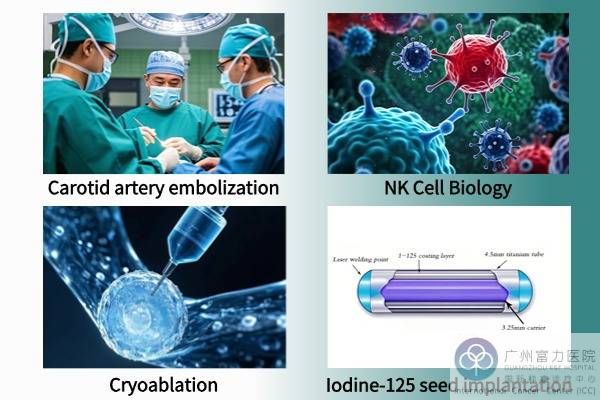
What is transarterial embolization?
Transarterial embolization is a minimally invasive technique that "starves the tumor to death." Under the guidance of DSA (digital subtraction angiography), the physician inserts the catheter into the tumor-supplying artery through femoral artery puncture (only a 2mm incision) and injects embolic agents (such as drug-loaded microspheres and iodized oil) to block blood flow. The tumor necroses due to ischemia and hypoxia, while the surrounding normal tissues are almost intact. If combined with chemotherapy drugs (i.e. TACE), a double blow of "cutting off food supply + poisoning" can be achieved simultaneously, and the efficacy can be increased by 2-3 times. It is done under local anesthesia, leaving only tiny pinholes in the skin.
What is NK cell biological immunotherapy?
NK cells (natural killer cells) are the "vanguard" of the human immune system. They can quickly identify and destroy cancer cells and abnormal cells infected by viruses without having to "remember" the enemy in advance.
What is cryoablation?
Cryoablation is a minimally invasive technique that physically destroys tumors through "extremely low temperatures". Under the guidance of CT or ultrasound, the doctor accurately punctures a pen-thin ablation needle into the tumor and releases argon gas to instantly cool the tumor to -140℃~196℃. The extremely cold environment freezes cancer cells into ice crystals, and the cell structure completely collapses. Subsequently, the helium gas is quickly heated to 20°C~40°C, and the alternating hot and cold "temperature difference attack" further destroys the residual cancer cells without damaging the surrounding normal tissues.
What is iodine-125 seed implantation?
Iodine-125 seeds are a type of "mini-radiotherapist" that is only 4.5 mm in size and contains the radioactive isotope iodine-125. After accurately locating the tumor using imaging technology (such as CT), doctors use a fine needle to implant dozens to hundreds of iodine-125 particles into the tumor. These particles deliver low-dose radiation over a continuous period of time (about 6 months), directly destroying tumor cells while maximizing the protection of surrounding normal tissue.
—— Enter the technology area to see which technology is more suitable for you
—— Stories of Lung Cancer Patients ——
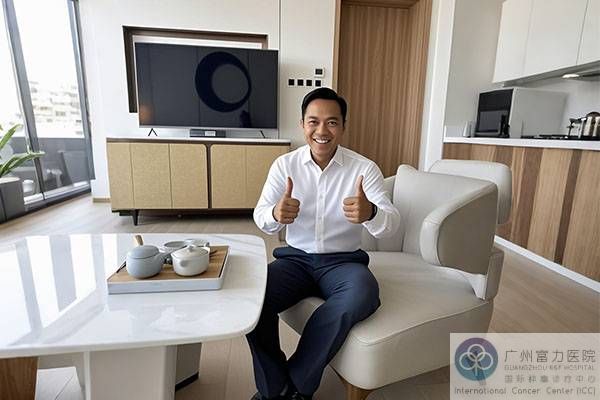
"The white shadow on the CT scan pressed the pause button. When even breathing became a luxury, I unexpectedly welcomed a new salvation on the other side of the world..."
—— To know how he recovered, read his story
—— Lung cancer symptoms ——
Do you have a long-term cough that is difficult to control? Is there blood in your sputum and chest tightness and pain?
The following are symptoms of lung cancer:
cough;
Blood in sputum or coughing up blood;
Chest pain;
Stridor;
fever;
Swelling of the head and face;
Supraclavicular lymphadenopathy;
Difficulty swallowing;
If you have symptoms like these and there is no improvement after two weeks of continuous treatment, you should be alert to the occurrence of lung cancer. Lung cancer is a cancer with a very rapidly increasing incidence and mortality rate. Due to the increasingly serious air pollution and the increase in the number of smokers, more and more people in the world are suffering from lung cancer. Paying attention to slight changes in the body, detecting minor symptoms in time, and conducting lung cancer examinations are one of the effective methods for preventing and treating lung cancer.
—— For more cancer knowledge, please click on the online doctor for consultation.
—— Lung cancer diagnosis ——
Lung cancer diagnosis technology:
X-ray examination
Bronchoscopy
Cytology
Exploratory thoracotomy
ECT
Mediastinoscopy
—— Enter the diagnostic center to learn about the latest diagnostic and treatment technologies
Use precise technology to create more possibilities for life.
The Cancer Center of Guangzhou R&F Hospital has opened an era of "chemotherapy-free survival" for cancer patients, winning a lasting victory for life. If you or your family are facing difficulties in cancer treatment, please contact the Guangzhou R&F Hospital Cancer Center. We offer multilingual medical history consultations, contact us today to get an assessment of your treatment eligibility.
Contact Us:
email: rfcancercenter@gmail.com |
WhatsApp: +86 18565157271




